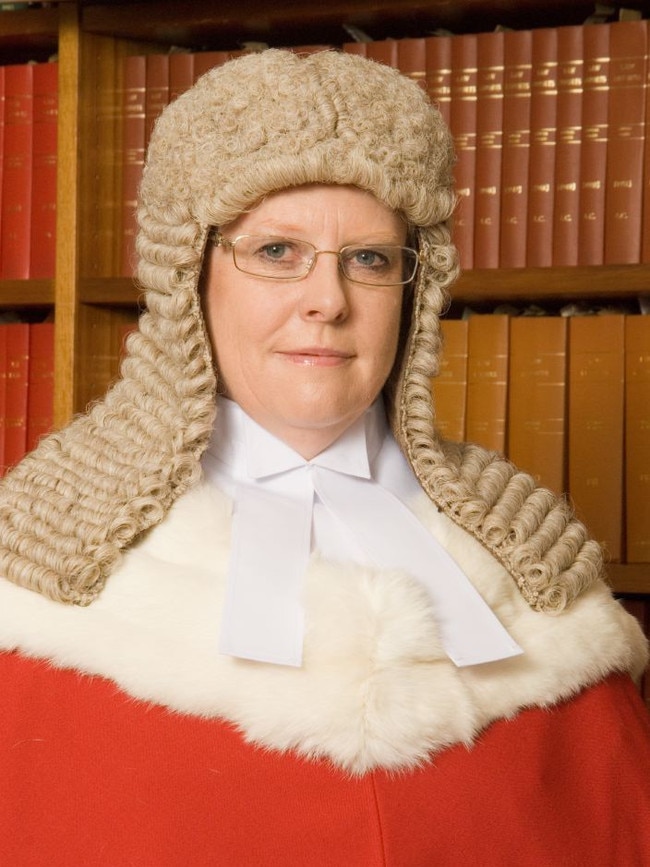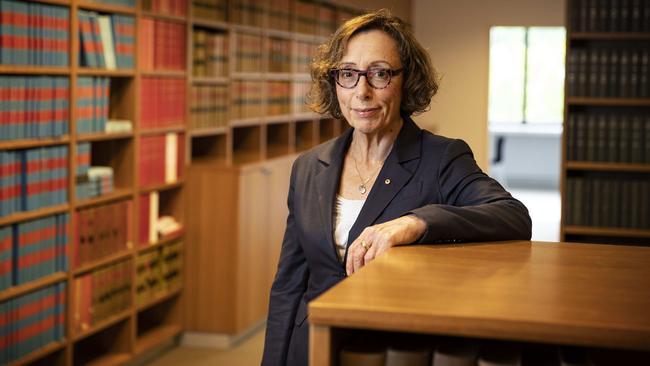
Mark Weinberg’s dissent over the flawed criminal conviction of the late Cardinal George Pell on child sex abuse charges is the prime example. Without Weinberg on the Victorian Court of Appeal it is hard to imagine Pell would ever have been freed by the High Court after he spent more than 13 months in solitary confinement for a crime he did not commit.
The lesson is that dissents should never be ignored merely because other judges have reached a contrary view. It’s the quality of the argument that counts.
A well-reasoned dissent can serve the public interest by highlighting flawed logic or misconceived statutes in a way that makes it difficult for those in authority to turn a blind eye.
Which brings us to Justice Julie Ward and the question of whether the NSW Independent Commission Against Corruption was entitled to brand a former NSW premier, Gladys Berejiklian, corrupt. The issue that concerned Ward last week was whether ICAC had breached the requirements of its governing statute – just as it did with former premier Nick Greiner and Sydney silk Margaret Cunneen SC.
Ward, who is president of the NSW Court of Appeal, was the only judge who sided with Berejiklian on this issue.
She would have struck down ICAC’s finding that Berejiklian was corrupt – not because she believed the former premier is a saint, but because she believed the commission had exceeded its powers.

Two other judges – Chief Justice Andrew Bell and Justice Anthony Meagher – disagreed on that issue and so the official position is that Berejiklian’s corruption finding remains in place.
There are issues here that go beyond the standing of a former premier.
The majority’s ruling is a precedent. It means ICAC is free to conduct future inquiries using the same tactics that have been impugned by Ward.
There is also the question of whether it is time to reform the secrecy provision in the ICAC Act that allowed the commission to refuse to disclose information going to the central issue in Berejiklian’s challenge.
That provision – section 111(4)(c) of the ICAC Act – enabled the commission to simply assert that it was not necessary in the public interest to disclose information about what Ruth McColl SC was doing after her appointment as assistant commissioner expired and she became a consultant to the commission.
This is hardly fair. There is no suggestion McColl did anything wrong. But her interaction with ICAC was directly relevant to Berejiklian’s argument.
How could Berejiklian hope to test the commission’s conduct against the requirements of the law when the commission can simply hide behind the secrecy provision? Transparency, it seems, is fine for everyone else but not for ICAC.
But that’s not even the main problem.
The majority’s decision to side with ICAC means there is nothing to prevent future corruption reports being drawn up by people in the commission’s back rooms who played no role in public hearings and did not personally assess the demeanour of witnesses.
This is why the NSW government needs to take a close look at this affair.
It starts with McColl, a former judge of the NSW Court of Appeal, who was appointed as a part-time assistant commissioner to run the Berejiklian inquiry at a particularly sensitive time.
The commission was involved in a dispute with Berejiklian’s government over increased funding and this led to a Sydney Morning Herald report that it had been necessary to bring in McColl to avoid a perceived conflict of interest.
In 2021, Bruce McClintock SC, in his capacity as ICAC’s independent inspector, found the decision to appoint McColl had been made “from an abundance of caution rather than from any legal requirement to do so”.

Yet Ward’s dissent shows that while the commission could have given McColl the power to make a report on the Berejiklian inquiry, it had not done so.
So who actually made the report that declared Berejiklian to be corrupt? Was it McColl who conducted the public hearing but had no authority make such a report? Or was it the chief commissioner, John Hatzistergos, whose name appears on the document that was tabled in parliament and had the statutory authority to make such reports?
The majority on the Court of Appeal accepted ICAC’s argument that the report was valid because McColl merely provided advice and services.
In the absence of information that ICAC chose to keep secret, a report by Gail Furness SC, who is McClintock’s successor as ICAC inspector, might cast some light on this issue.
Furness wrote last year that McColl delivered a draft report to the commission on February 8, 2023. It consisted of 714 pages in three volumes. She presented it to a review panel that consisted of Hatzistergos, the two other commissioners and four commission staff. According to Furness, they provided McColl with written “concerns, suggestions and recommendations” that came to 99 pages.
Ward was not convinced that McColl’s role when she delivered the draft report was limited to merely providing services and advice, which is permitted under the ICAC Act.
The final report says the commission “adopted” McColl’s witness credibility assessments and that, according to Ward, meant McColl was making findings that she did not have the power to do.
Ward’s logic is compelling. But even if she is wrong, Berejiklian’s treatment has been unjust. She was denied access to relevant information and that meant this contest was far from fair.
Chris Merritt is vice-president of the Rule of Law Institute






Every now and then, a dissenting judgment in an important court case is so persuasive it makes injustice impossible to ignore.